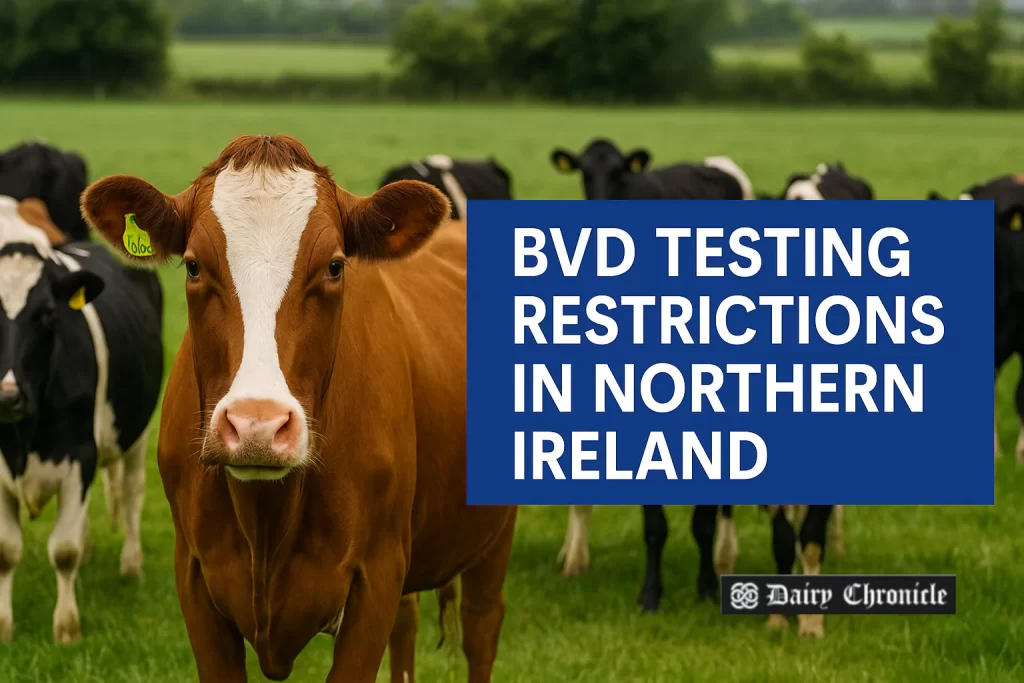Animal Health and Welfare Northern Ireland (AHWNI) will enforce restrictions on herds with untested cattle for BVD starting June 2025. Herds with 20+ untested animals over 30 days old will face movement restrictions, with thresholds lowering to 10 and then 5 untested animals later this year. Farmers are urged to test all cattle, including older ‘BVD Unknown’ status animals, to avoid restrictions and support virus eradication efforts.
Animal Health and Welfare Northern Ireland (AHWNI) has announced that from June 2025, restrictions will be applied to cattle herds containing significant numbers of animals untested for bovine viral diarrhoea (BVD). This move aims to reduce the risk of infection spread and support ongoing efforts to eradicate the virus in the region.
Starting in June, herds with 20 or more cattle over 30 days old that have not undergone BVD testing will face movement restrictions. These limitations will affect all inward and outward movements of animals except those being sent directly to slaughter or disposal. The restrictions will also extend to any associated herds, further tightening control measures.
The threshold for restrictions is set to decrease over the coming months. On December 1, 2025, herds with 10 or more untested cattle will be restricted, and six months later, the limit will fall further to just 5 untested animals. This phased approach is designed to encourage farmers to test their cattle promptly and minimize the number of untested animals in the population.
AHWNI stresses that animals born before March 1, 2016—the start date of the compulsory BVD testing programme—that have not been tested or do not have a BVD negative calf registered against them are classified as having ‘BVD Unknown’ (BVDU) status. These animals also count toward the threshold for restrictions and need testing to confirm their status.
“Older cattle with BVDU status contribute to the counts on which restrictions are based. However, any dam with a confirmed negative calf automatically gains a negative status and does not require direct testing,” AHWNI explained.
Herd restrictions will be lifted immediately once a negative BVD result is confirmed for all cattle over 30 days old. Meanwhile, individual cattle with BVDU status will face movement restrictions preventing them from going to markets, other farms, or abattoirs.
To avoid restrictions, AHWNI recommends farmers actively protect their herds by testing all calves promptly and addressing the BVD status of any untested or BVDU animals. The current rules also impose restrictions on herds retaining BVD positive or inconclusive animals for more than seven days, a policy that has already helped reduce virus retention rates.
“This reduction in retention is vital as we approach a peak period of vulnerability for pregnant stock. These measures will play a key role in protecting the upcoming calving season and in driving progress toward eradication of BVD in Northern Ireland,” the agency said.
Farmers are urged to engage proactively with the testing requirements to safeguard herd health, maintain trade flexibility, and contribute to the wider goal of eliminating BVD from the region.



